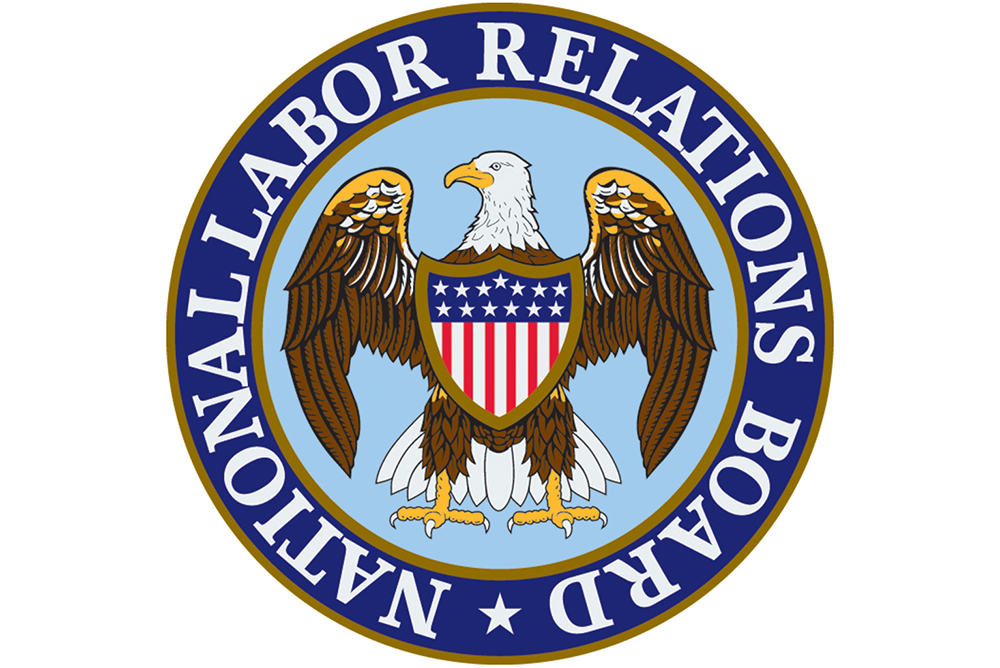The National Labor Relations Board (NLRB) has announced a proposal to amend its rules by making employer-friendly changes that continue the Board’s efforts to reverse union gains made during the Obama administration.
 The Board published a Notice of Proposed Rulemaking in the August 12 Federal Register that proposes three amendments:
The Board published a Notice of Proposed Rulemaking in the August 12 Federal Register that proposes three amendments:
- A proposal to replace the current blocking charge policy with a vote-and-impound procedure.
- A return to the Dana Corp. rule relating to how quickly union representation can be challenged when an employer voluntarily recognizes a union.
- A change relating to bargaining relationships in the construction industry.
An NLRB fact sheet explains that current policy permits a party, usually a union, to block an election indefinitely by filing unfair labor practice charges. “This policy can preclude holding the petitioned-for election for months, or even years, if at all,” the fact sheet says. “Therefore, in order to prevent this delay in the holding of a Board-conducted secret-ballot election, the amendment proposes that the Board adopt a vote-and-impound procedure whereby an election would be held regardless of whether a blocking charge and blocking request are pending and the ballots would be impounded until there is a final determination regarding the charge and its effect, if any, on the election petition or fairness of the election.”
Burton J. Fishman, an attorney with Fortney & Scott, LLC in Washington, D.C., explains that the blocking charge change would move union elections much closer to election campaigns rather than delaying a vote until the blocking charge is resolved, a change likely to make union victories more difficult.
‘Greater Challenge’ to Unions Than to Employers
Regarding the Dana Corp. rule, the fact sheet explains that currently, an employer’s voluntary recognition of a union immediately bars the filing of an election petition for no less than six months after the date of the parties’ first bargaining session and no more than one year after that date.
The NLRB majority’s view is that under the current rule, a Board-conducted secret-ballot election contesting the initial non-electoral recognition of a union is precluded for as long as four years even though the court- and Board-recognized statutory preference for resolving representation questions is through a Board-conducted secret-ballot election.
Reinstating the Dana Corp. rule presents “a greater challenge” to unions than to employers, Fishman says.
As for the proposed change affecting the construction industry, Fishman says, “This is complicated, but the short of it is this will make it significantly harder for a union to show that it has sufficient support to maintain a collective bargaining relationship.”
Cumulative Effects of Proposed Changes
If implemented, the proposed changes are likely to be setbacks for unions and a continuation of the Republican-majority NLRB’s efforts to roll back union gains made during the Obama administration, when the Board had a Democratic majority.
“The construction industry rule will raise meaningful barriers to continued union representation,” Fishman says in summing up the proposed changes. “The blocking charge rule will also likely have an impact. Holding an election despite a blocking charge may lead to fewer union victories,” since many blocking charges are filed to delay an election if the union expects to lose. Also, he says a return to the Dana rule would let workers change their minds sooner, which may or may not reverse a union victory.
Fishman says it’s important to note that the proposed rule is the first step in an NLRB effort to reverse the “quickie election” rule—a change adopted during the Obama administration that greatly reduced the amount of time employers have to counter union campaigns.
To Comment
Public comments are invited on the proposed rule and should be submitted by October 11. Comments can be sent electronically to www.regulations.gov or by mail or hand-delivery to Roxanne Rothschild, Executive Secretary, National Labor Relations Board, 1015 Half St. E., Washington, D.C. 20570-0001.
Tammy Binford writes and edits news alerts and newsletter articles on labor and employment law topics for BLR web and print publications.
